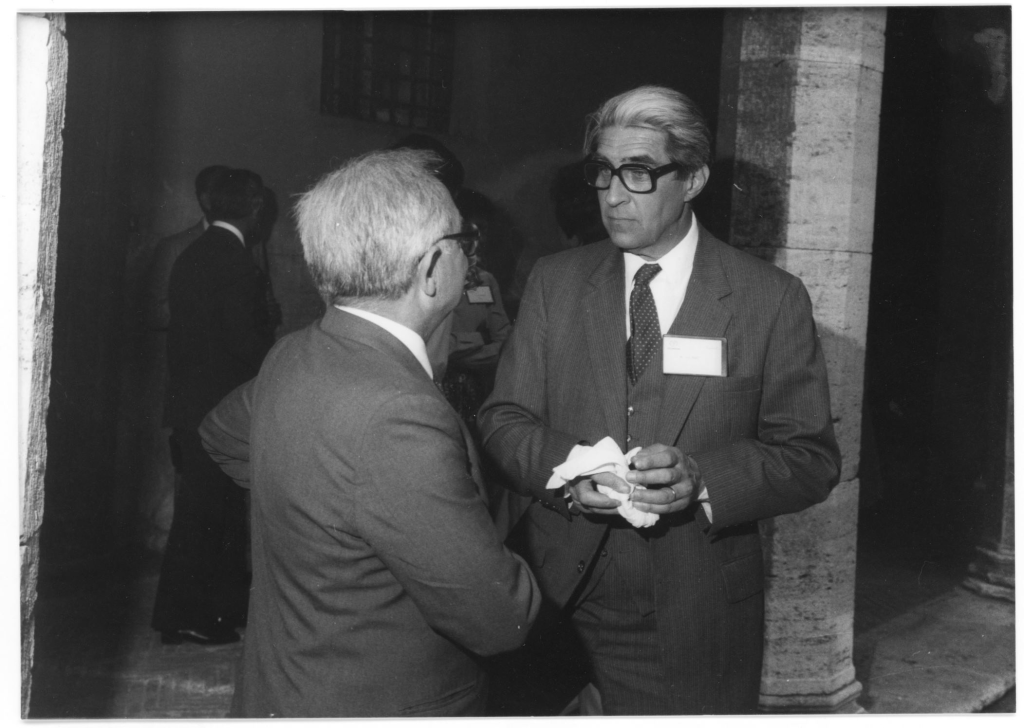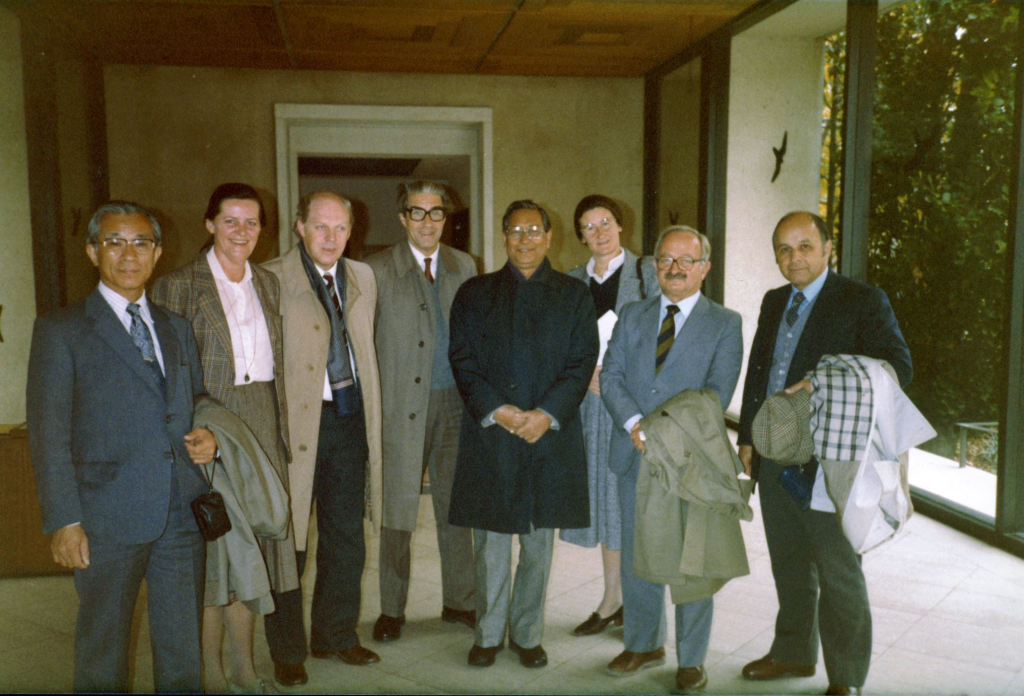 Paul N. Perrot, a prominent and beloved figure in ICCROM's history, passed away quietly, surrounded by his four children, on 14 March 2023 at the age of 96.
Paul N. Perrot, a prominent and beloved figure in ICCROM's history, passed away quietly, surrounded by his four children, on 14 March 2023 at the age of 96.
Mr Perrot played a considerable role in the world of museums and the conservation of cultural property, particularly at ICCROM.
A visionary and pragmatist, he wrote: "It is dangerous to think too big, but it is just as dangerous to think too small."
Mr Perrot was born in France in 1926. Orphaned by his father, who was a member of the French resistance and was executed in a concentration camp, he emigrated to the United States with his mother in 1946. Because of the very difficult living conditions, he could not continue his studies. In 1948, he joined the Cloisters Museum of the Metropolitan Museum of Art as a cloakroom attendant. He later moved to the information desk. His abilities were quickly recognized, and he became an assistant in the department of medieval art.
In 1952, he was appointed Assistant to the Director of the Corning Museum of Glass and then Director in 1960. In a few years, he transformed the establishment into a world reference.
In 1970, the United States was not yet a Member State of ICCROM. Thanks to a group of professionals working at the Smithsonian Institution, including attorney Peter G. Powers, and a 9 May 1970 amendment to the National Historic Preservation Act, the United States joined ICCROM on 20 January 1971.
Appointed to the prestigious position of Assistant Secretary for Museums at the Smithsonian Institution, Paul Perrot was part of the United States delegation to the ICCROM Council in 1972. He was elected to the Council the following year and served until 1988. During this period, he was the Vice Chairman for six years and the Chairman from 1986 to 1988.
With the United States' financial contribution, ICCROM's budget increased by almost a third, allowing for the development of activities. During his 16 years on the Council, Mr Perrot was always available to encourage, accompany and advise the three directors who succeeded him, contributing to the development of ICCROM's mission and its continuity.
 Mr Perrot had a particular awareness of the essential role of conservating movable heritage for museums and conservator-restorers, for whom he had great respect. In an effort to provide them with excellent training, he created the ICCROM Training Committee, which he chaired for six years.
Mr Perrot had a particular awareness of the essential role of conservating movable heritage for museums and conservator-restorers, for whom he had great respect. In an effort to provide them with excellent training, he created the ICCROM Training Committee, which he chaired for six years.
Mr Perrot had great responsibilities and commitments to the United States and many international professional organizations (e.g., AAM, ICOM, ICOMOS), but from 1972 he said he was "at the service" of ICCROM. He played an active ambassadorial role, encouraging new states to join ICCROM, including Canada, in 1978. Perrot established the Association of Friends of ICCROM in the United States and worked to create the Programme and Finance Committee that ensures strict management of the organization while allowing new activities to be launched. He also encouraged the ICCROM Library to meet international standards of documentation.
Mr Perrot also advocated for ICCROM Staff. Our staff members benefit from the UN Pension Fund at Paul Perrot's initiation and actions.
As early as 1975, Mr Perrot highlighted the neglect in which museums – including the 17 museums under his responsibility – were leaving their storerooms. He set an example of what should be done by organizing the first international conference on reserves in 1976 and building the Museum Support Center in Washington, D.C., which today houses 31 million objects and collections.
For all these reasons, in 1990, the ICCROM General Assembly awarded him the "ICCROM Prize."
It is with great sadness that we send our deepest condolences to Mr Perrot's children – Paul, Chantal, Jeannine and Robert – on behalf of the ICCROM staff and all those who, through ICCROM's activities, benefited from his work.
